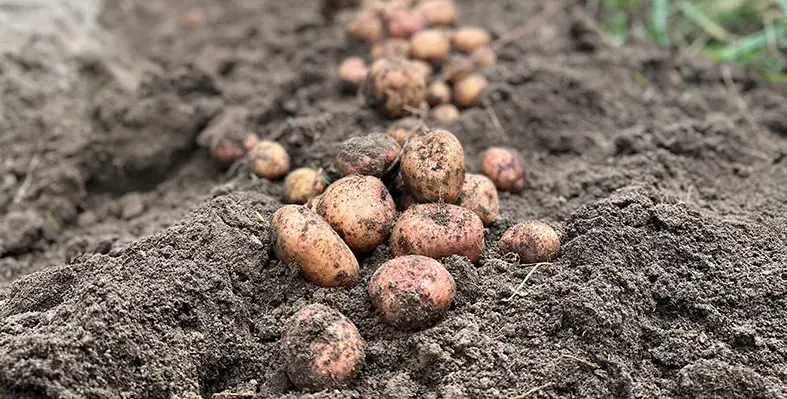Kenyan potato farmers are getting a major boost in their long-standing fight against a destructive pest—the potato cyst nematode (PCN)
This microscopic pest attacks potato roots and can destroy up to 80% of a harvest, often going unnoticed until it’s too late. Its tiny cysts can survive in the soil for decades, making it an incredibly tough threat to eliminate. As described by Dr Danny Coyne of IITA, it’s a “silent killer” that’s often only discovered once yields have already dropped.
To help tackle this problem, two new potato varieties—Malaika and Glen—have been introduced in Kenya after more than a decade of research and collaboration. The breeding effort brought together local and international partners, including IITA, icipe, the James Hutton Institute in Scotland, CIP, KEPHIS, and private players like Greenvale. These new varieties are specifically bred to resist PCN while also meeting local farming needs like fast cooking, short dormancy, and the ability to regrow quickly for multiple planting seasons.
Malaika and Glen were officially listed in Kenya’s National Variety List by KEPHIS in July 2025, after performing well in national trials and passing the standards required by processors. Commercial growers have already started multiplying the seed through stem cuttings, with the first rollout to farmers expected as early as September 2025.
The impact could be transformative. Potatoes are Kenya’s second most important staple after maize, supporting an estimated 2.5mn people and contributing about US$500mn annually to the economy. PCN, along with another major pest known as Soft Rot Pectobacteriaceae (SRP), is responsible for crop losses worth over US$636mn across East Africa each year.
John Jones, professor of the James Hutton Institute noted that the success of these new varieties reflects years of scientific work and international teamwork. “The importance of the collaboration with Kenyan research partners and regulators cannot be overstated,” he said. These varieties, originally developed for the UK, have been adapted to meet the climate and agronomic needs of Kenyan farmers.
With these PCN-resistant varieties, farmers can expect better yields, stronger plants, and a safer investment in their harvests. This development not only offers a practical solution to a major agricultural challenge, but also represents a leap forward in sustainable farming across East Africa.





